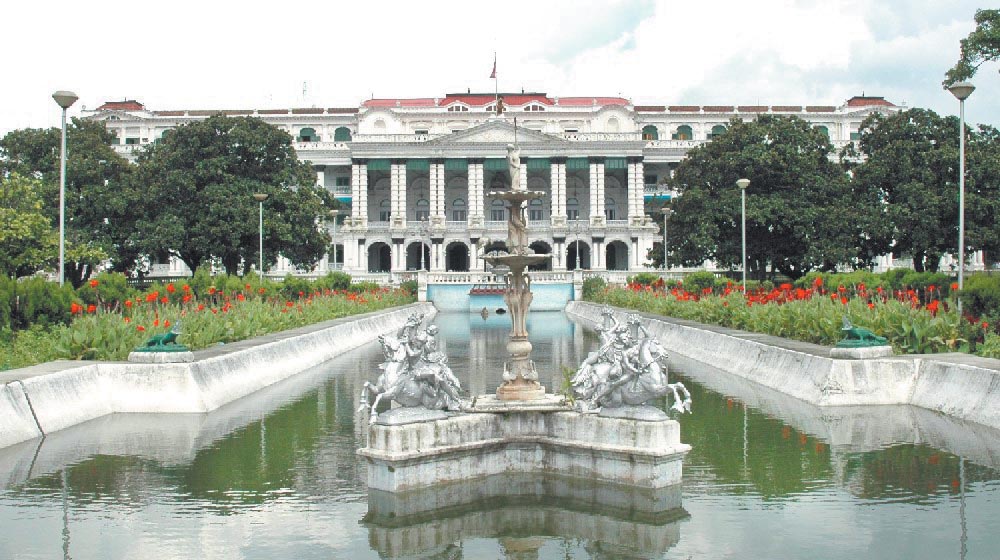Govt urged to reminisce past deal before raising grant instalment
Kathmandu, June 30
Donor agencies, which are supporting the National Reconstruction Authority-led initiative to extend a grant of Rs 200,000 to each homeowner who lost a house during devastating earthquakes of 2015, have called on the government to work as per the commitment expressed in the past and follow global best practices while releasing instalments of the housing grant to quake survivors.
This is a tacit reminder that the government should not implement its latest decision to raise the first instalment of the grant amount three-fold to Rs 150,000 and limit the size of the second and final instalment to Rs 50,000.
This change made by the government is in sharp contrast to existing arrangement under which grant should be disbursed in three instalments of Rs 50,000, Rs 80,000 and Rs 70,000.
“Subsidy payments should be made on the basis of principles agreed to at the International Conference on Nepal’s Reconstruction (held in June 2015).
These principles are based on global best practice in post disaster reconstruction and are designed to ensure that eligible beneficiaries receive and utilise reconstruction grants for intended purposes,” states a letter written to finance minister Bishnu Prasad Paudel today by the World Bank on behalf of development partners that are assisting the government to pool resources for grant distribution.
The letter, a copy of which has been obtained by The Himalayan Times, further states that modalities through which the World Bank and other donors have agreed to support the programme should remain the same.
This statement comes at a time when the government has agreed to add Rs 100,000 to the first instalment of housing grant of Rs 50,000 to fulfil demand of the main opposition Nepali Congress party.
The NC had exerted pressure to make the change, claiming that the government has not been able to disburse the first instalment of the housing grant even 14 months after the first big earthquake hit the country in April 2015. “This has forced over 500,000 families to stay in temporary shelters during monsoon.”
The opposition party has also complained of discrimination during beneficiary identification process, claiming that many quake survivors were ‘deliberately not contacted because of their political affiliation’.
Data released today by the Ministry of Federal Affairs and Local Development show that 89,219 quake survivors have filed petitions so far complaining their exclusion from the grant beneficiaries’ list.
To press its call for hike in the first grant instalment and unprejudiced treatment towards quake survivors, the Nepali Congress even obstructed House proceedings for a week.
The House resumed operation yesterday after the government entered into an agreement with the opposition party to raise the size of the first grant instalment.
It is not known how the agreement would be implemented, as Finance Minister Paudel and Prime Minister KP Sharma Oli’s Chief Advisor Bishnu Rimal could not be contcted.
However, Senior Congress Leader and former finance minister Ram Sharan Mahat said the deal with donor agencies should be renegotiated.
“There has already been a delay in grant distribution and people are suffering. I think the donor agencies have well understood this problem.
So, renegotiation could serve the interest of the country,” Mahat said, adding, “However, changes in terms and conditions of the grant distribution process should be mutually acceptable.”
Attempts to make any unilateral decision in this regard may backfire because development partners may express reluctance to mobilise additional financial resources for housing grant in the future.
So far, the World Bank has pledged US$200 million (approximately Rs 21.7 billion) for Rural Housing Reconstruction Programme, while the European Union has pledged 100 million euros, the Japan International Cooperation Agency has pledged $100 million and Canadian, Swiss and the US governments have pledged $25 million.
It is said the US government may extend another $100 million and the Indian government may also contribute another $100 million for the programme in future.
As per the National Reconstruction Authority, the country needs at least Rs 286.06 billion to rebuild rural houses and another Rs 90.06 billion to rebuild urban houses.






